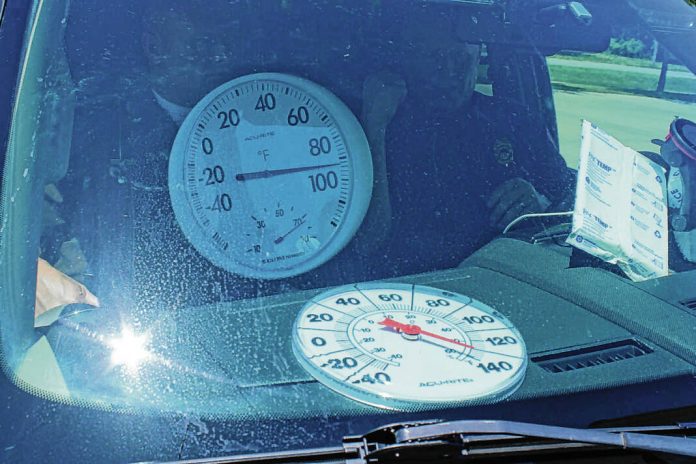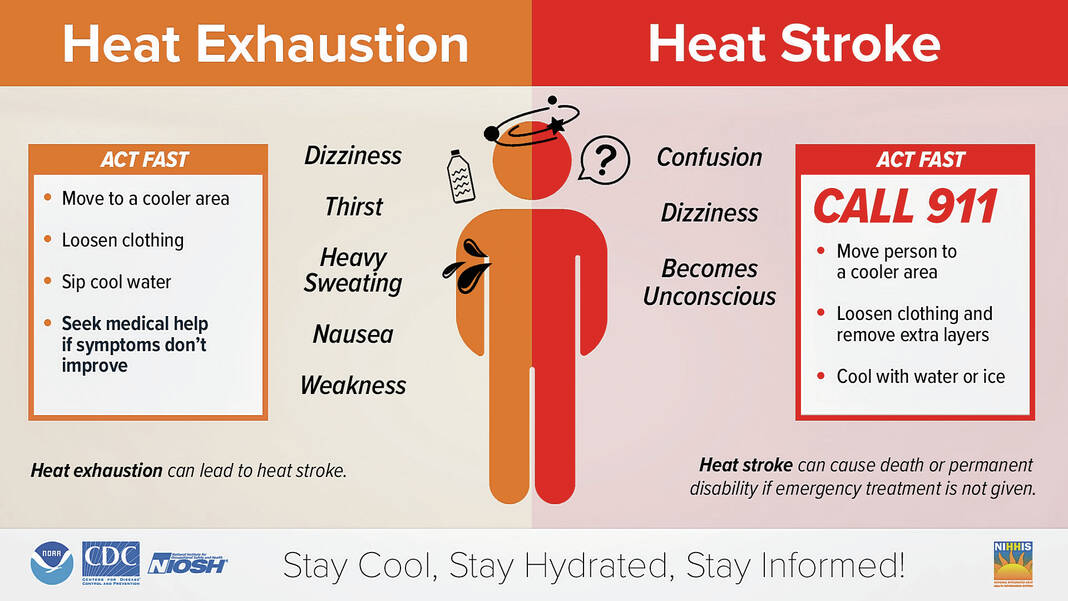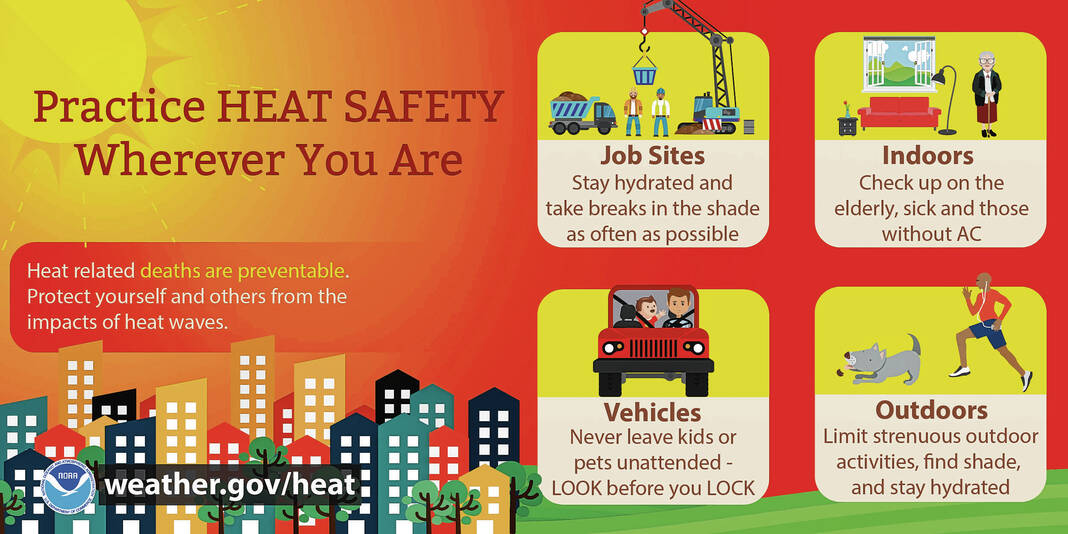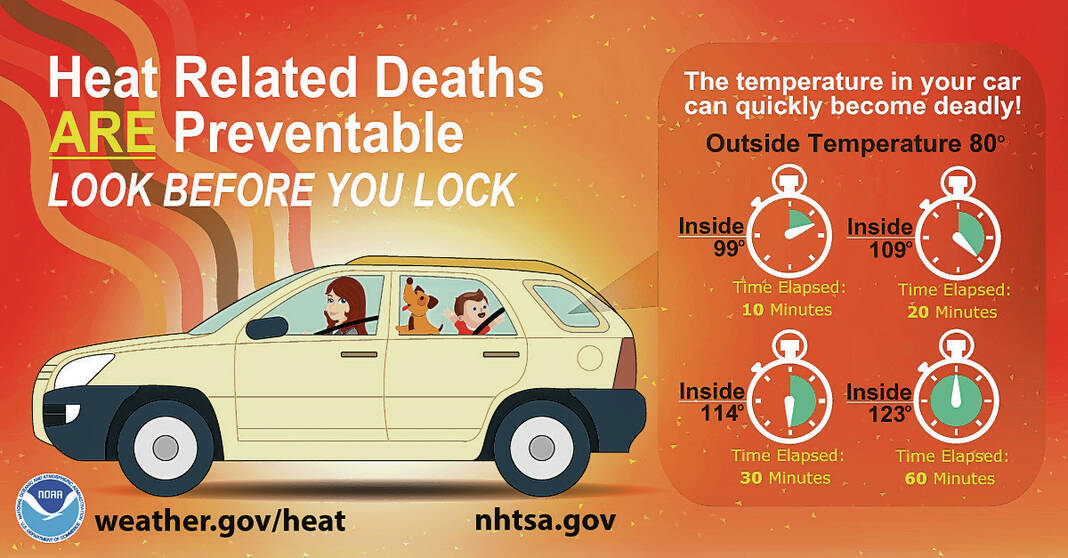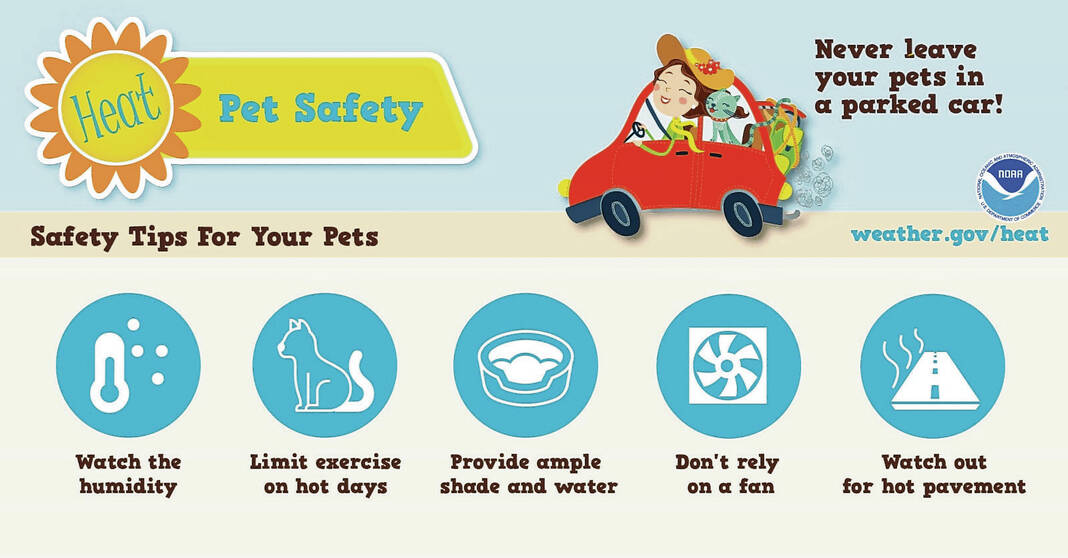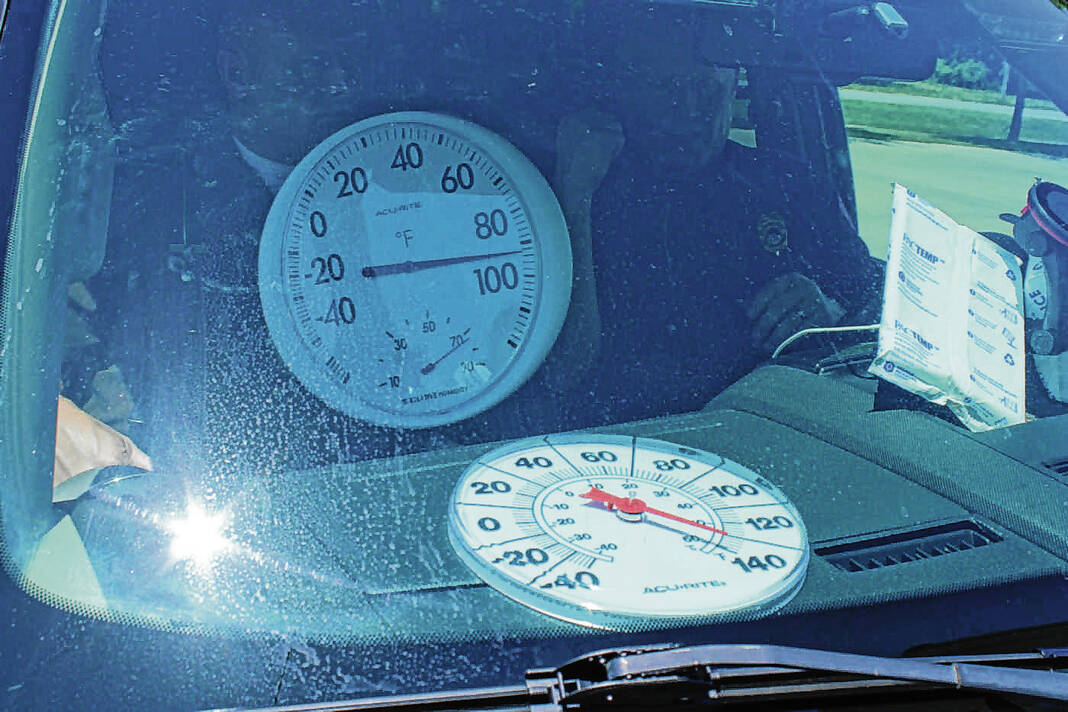Local health experts want the public to know the signs of heat-related illnesses as high temperatures are forecast for the next few days.
A Heat Advisory is in effect from 8 a.m. Thursday to midnight Friday night as hot temperatures and high humidity move into central Indiana. High temperatures on Thursday and Friday are expected to be in the middle to upper 90s, producing heat index, or “feels like,” values between 100 and 109 degrees during the afternoon and early evening hours. The highest heat indexes are expected on Friday, meteorologists with the National Weather Service say.
An Air Quality Action Day will also be in effect for all of Indiana Thursday because of high temperatures and smoke from Canadian wildfires.
Dangers of high heat
Heat is one of the leading weather-related killers in the U.S., resulting in hundreds of fatalities each year. It can be very taxing on the body, and prolonged exposure can lead to fatigue, sunstroke, heat cramps, heat exhaustion or heatstroke, according to the NWS.
Young children and infants, older adults, people with chronic medical conditions and pregnant women are at higher risk of getting heat-related illnesses compared to the rest of the population, officials say.
At Johnson Memorial Hospital, emergency room doctors typically see a variety of heat-related injuries. Minor injuries include heat cramps, while major injuries include heat exhaustion and heatstroke, said Dr. Ryan White, a medical director for the emergency department.
Heat cramps often manifest as painful muscle spasms and are usually the first sign that someone is experiencing a heat-related injury. Other symptoms include beginning signs of dehydration and loss of nutrients like electrolytes or sodium, White said.
From there, the injuries escalate to heat exhaustion. With heat exhaustion, patients start becoming weak when doing physical activity and have warmer than normal core temperatures due to temperature regulation issues, he said.
Patients with heat exhaustion will still have normal mental statuses. However, they may have an elevated heart rate, feel lightheaded or say they have a headache — all of which are typically caused by dehydration, White said.
“They’ll oftentimes be profusely sweating, and even some will come in with abdominal cramping, nausea, vomiting, diarrhea,” White said.
If their condition gets worse, they are likely suffering from heatstroke — the most severe of the heat-related illnesses. At this point, the situation becomes life-threatening, White said.
With heatstroke, patients will not only show heat cramps and heat exhaustion symptoms but also altered mental statuses. Patients could have seizures, show signs of confusion or irritability, or go into a coma. Organ damage is also possible, he said.
“Their temperatures are often quite high,” White said. “Their temperatures are going to be above 104 degrees, and, again, that’s all related to their bodies’ lack of ability to regulate temperature.”
There is a myth that heatstroke patients will stop sweating, but some patients are still sweating profusely after heatstroke sets in, White said.
Heatstroke can affect not only those with more active lifestyles but also at-risk populations like the elderly, infants and those with certain health conditions like heart or lung disease. Some of these populations, like the elderly, are often isolated and don’t have the means to move freely from one location to another to escape the heat, he said.
How to stay safe
To avoid heat-related illnesses, White encourages the public to pay attention to temperature forecasts. People who need to be outside during the day should try to be active in the morning or in the evening once the sun goes down, he said.
White says people should also make sure to check on friends, families and loved ones to make sure they’re prepared — especially those who are at higher risk of heat-related illnesses.
“It’s good to not only think about ourselves and how we can prevent it, but also think about checking on our friends, neighbors and loved ones and make sure that they have the resources they need — water, access to air conditioning, or at least air movement,” White said.
Air conditioning access is the top way to prevent health-related illnesses. Most people have access to air conditioning, however, some people do not, so White encourages those who don’t to go to a public facility that does.
People who are outside should make sure to hydrate throughout the day and take plenty of breaks. Hydration should begin before people go out, and people should try to drink a minimum of 64 ounces and wear sunscreen, said Mike Pruitt, deputy chief of the Bargersville Fire Department.
Those looking to replace electrolytes should drink non-alcoholic beverages like Gatorade. Athletes should avoid taking salt tablets unless they are directed to by a doctor, White said.
Wearing light-colored and loose clothing can also help reduce the chances of getting a heat-related illness. People should not wear heavy clothing, he said.
If someone is showing signs of heat-related illnesses, they should go to their primary care doctor, an immediate care center or an emergency room. If someone is showing signs of heatstroke, call 911 immediately, White said.
Pruitt encourages residents to make sure they’re not leaving children or pets alone in their cars. It only takes minutes for temperatures to skyrocket in a hot car, leaving children and pets locked in at risk of death, he said.
“We see it play out every year across the state due to the parents who thought they could run in (somewhere) or they forget they put the child in the car,” he said.
Last year, 33 children died in hot cars across the United States. While there have not been any reports of this happening in Johnson County this year, there have been calls about pets left inside hot cars, Pruitt said.
People should put something important in the backseat as a reminder to check back there for kids and pets.
“We always tell people to pay attention to what’s going on and to put things in the backseat you know you’ll have to pull out so if for some reason you forget the child, you still have to go to the backseat to get it and the child,” he said.
For more information on what to do during heatwaves, go to heat.gov.


